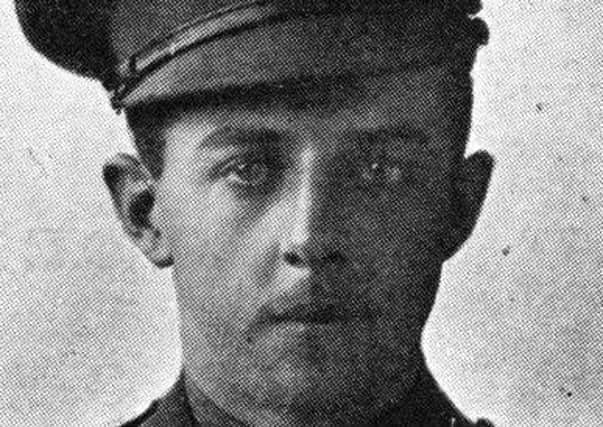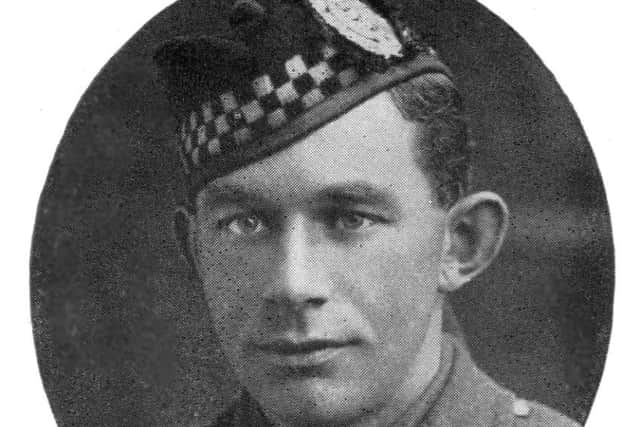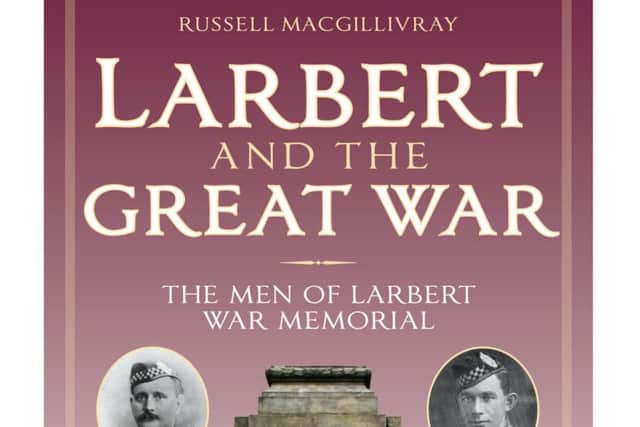Lest we forget: Larbert's role in the Great War


These solemn gatherings are all the more poignant at this time when we continue to recall the events of a century ago when every town and village sent their fathers, husbands sons and brothers to fight for “King and Country” in the Great War of 1914-18.
Many thousands did not return: 700,000 from Britain, around 100,000 from Scotland and over 3000 from Falkirk district.
Advertisement
Hide AdAdvertisement
Hide AdIn Larbert the war memorial at the Dobbie Hall names 286 men from the parish and their story has now been told by Russell MacGillivray who has painstakingly researched the lives, service and deaths of each one for his book “Larbert and the Great War” published by Falkirk Local History Society this week.


It is the most comprehensive study of the First World War so far produced in our area. It sets each soldier’s story in the theatre of war in which his life was lost along with personal and family information that help remind us these were, for the most part, ordinary young men from the foundries and mines thrust into the horrors of the trenches when they were hardly more than teenagers.
But as the names on the memorial testify the conflict did not spare any rank in local society.
The most senior officer to die was Major James F Jones of Torwoodhall, son of James Jones the ironmaster.
Advertisement
Hide AdAdvertisement
Hide AdServing with the 7th Argylls he led his regiment through the Battle of the Somme, fell ill the following year and died in hospital in March 1917.


He refused the chance to return home for treatment which might have saved his life.
The Sherriff family of Carronvale had double cause for grief losing their youngest son, Andrew, within a couple of months of the outbreak of war while serving as a lieutenant with the Northamptonshire Regiment and his older brother, John, an officer in the 7th Argylls who was killed the following year at the Battle of St Julien.
The loss of two sons was a fate shared by many: There are 18 pairs of brothers named on the Larbert memorial and the West Carron family of Robert and Alison Scott had to bear the loss of three sons, Walter who died at Arras with the Hussars in May 1917, and his younger brothers James, who was killed in the aftermath of the Battle of Loos on 1915, and John who died while serving with the Argylls at Cambria in November 1917 just 100 years ago this month.
Advertisement
Hide AdAdvertisement
Hide AdTen of the Larbert men had distinguished themselves in battle in the months before their deaths and received decorations for gallantry.


The Military Cross was awarded to three men and a further six earned the Military Medal.
One soldier, Colour Sergeant Major William Dick, won the Distinguished Conduct Medal.
When the war was finally over in November 1918 the suffering community sent certificates of gratitude to the families of those who had died and set about creating a permanent war memorial.
Advertisement
Hide AdAdvertisement
Hide AdAt first the plan was for a figure representing Peace and Justice to stand at the ‘‘Point’’ in Stenhousemuir outside the Plough Hotel.


Eventually they settled for the simpler cenotaph at the Dobbie Hall which was unveiled on September 24, 1922, by Colonel Alan Stein of Polmont who had served with distinction in the Argylls.
Russell’s book will be available from mid November in bookshops and via Falkirk Local History Society or by contacting me on [email protected].